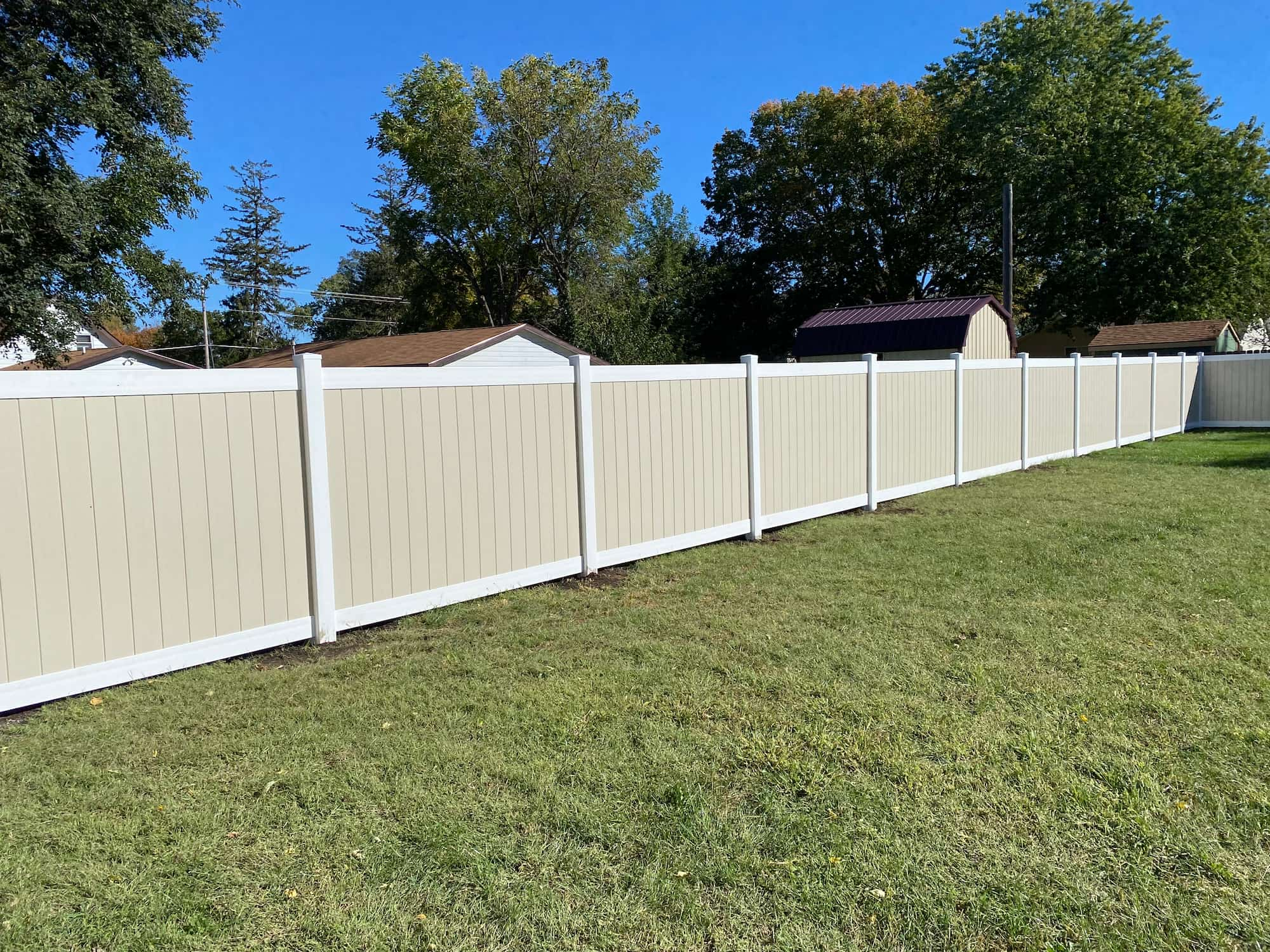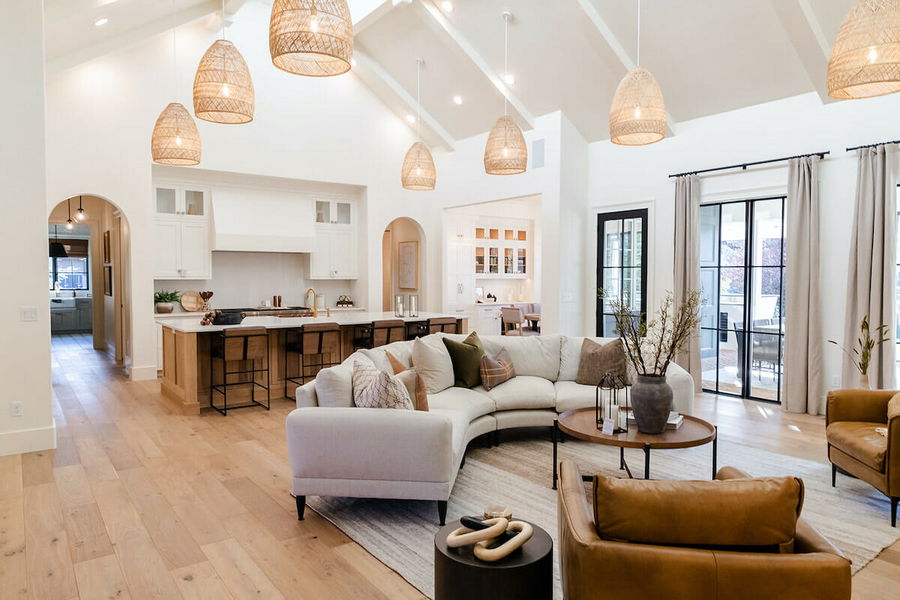1st human-composting funeral dwelling in the U.S. opens close to Seattle
KENT, Washington — Somewhere in Kent, tucked anonymously into acres of warehouses and light-weight-industrial workshops, the first entire-assistance human-composting funeral property in the United States is operational.
Following approximately a ten years of arranging, investigate and fundraising — not to point out a profitable marketing campaign to modify point out law — Recompose is finally changing individuals into soil.
Outdoors, the entrance to Recompose appears to be like like most of its neighbors — just a further device in a tall, practically block-sized making with plain metallic siding and large, roll-up warehouse doors. But within, it feels like an environmentalist’s variation of a smooth, futuristic spaceship: spare, serene, utilitarian, with silvery ductwork previously mentioned, a couple of soil-doing work resources (shovels, rakes, pitchforks) on racks, luggage of tightly packaged straw neatly stacked on shelves, fern-environmentally friendly partitions, potted crops of different sizes.
1 huge item dominates the area, wanting like an massive fragment of white honeycomb. These are Recompose’s 10 “vessels,” each and every a hexagon enclosing a metal cylinder complete of soil. One particular day in mid-January, 8 decedents had been now inside 8 vessels, undergoing the procedure of organic natural reduction (NOR) or, additional colloquially, human composting.
A single vessel contained the remains of Ernest “Ernie” Brooks II, a renowned underwater photographer. Natural-farming pioneer Robert “Amigo Bob” Cantisano lay in a 2nd. A third held Paulie Bontrager, a dedicated environmentalist, vegan and mother nature lover from West Virginia who died unexpectedly whilst viewing her daughter in Burien.
Charlotte Bontrager, Paulie’s daughter, had read about Recompose a few of several years in the past in a newspaper short article.
“I discussed it with my mom,” she reported. “We talked about how interesting it was and why it took so prolonged to get a assistance like this. I don’t forget her expressing: ‘If it’s at all attainable when I die, I want to go that way.’ Longevity operates in my relatives — her uncle died a calendar year ago at 104 — and I explained: ‘Oh mom, you’ll be all over yet another 30 several years. I’m absolutely sure it’ll be in spot by then.”
Two years afterwards, her mother was in a Seattle clinic with a mortal, formerly undetected lung situation. Bontrager refused to search for disposition solutions until eventually her mom experienced passed. The moment she experienced, at 5:45 a.m., a thirty day period in advance of what would’ve been her 75th birthday, Bontrager googled “Seattle” and “human composting” — and uncovered that Recompose was ready.
“My mother was a quite humble, loving person and would not want any sort of spotlight,” Bontrager claimed. “But she’d be thrilled to know she was amongst this initially team of pioneers.”
Katrina Spade, founder and CEO of Recompose, in advance of the formal start celebration in Seattle. (Ken Lambert/Seattle Instances/TNS)
The 1st bodies have been “laid in” on Dec. 20, 2020, a landmark moment on a practically 10-calendar year journey for Recompose founder and CEO Katrina Spade. She very first commenced mulling funerary alternate options throughout a small mortality disaster of her individual, as an architecture scholar at the College of Massachusetts, Amherst, with a spouse and two youthful youngsters.
Spade researched her solutions, which ended up limited to conventional burial (also poisonous and expensive), cremation (much too carbon-intensive) and rural green burial (as well exceptional and inconvenient for most town dwellers). She started off thinking about composting as a form of soil-centered cremation and, in 2013, concluded her Master’s thesis: “Of Dust and Decomposition: Proposing a Put for the City Useless.”
Other mileposts adopted: feasibility research in 2015 (with the Office of Forensic Anthropology at Western Carolina College) and 2018 (with soil scientist Lynne Carpenter-Boggs at Washington Condition University), a press to improve state legislation making it possible for NOR to be a lawful usually means of disposition for human continues to be (signed by Gov. Jay Inslee in Might 2019) and boosting $6.75 million in capital to get Recompose likely.
In 2020, two other NOR rivals emerged: Herland Forest, a all-natural-burial cemetery in Klickitat County with a person vessel (which it calls a “cradle”) and Return Residence, which ideas to open up its Auburn facility with dozens of vessels in April.
Recompose fees $5,500 for every thing: the physique pickup (in King, Pierce and Snohomish counties), the paperwork, the process itself and an optional services. (Physique transport from even more absent can be arranged, for an extra price, and Recompose has presently acknowledged bodies from California and the East Coastline.)
Loss of life care costs in the U.S. are inclined to be really inconsistent and normally opaque, with few funeral households listing expenses on the web — a situation customer-legal rights advocates have been shouting about for many years. Recompose pricing is transparent and not in particular pricey, but it is not specifically low-priced. In accordance to a 2020 price study by area nonprofit the People’s Memorial Association, cremation charges in Washington state differ by 745% (in King County, the assortment is $525-$4,165) and burial charges by more than 400% (all over again, in King Place, from $1,390 for the most frugal, direct, no-provider burial to $11,100 for a total, substantial-conclusion funeral assistance).
Mother nature scenes are projected on the wall at the Recompose formal start party in November 2019. (Ken Lambert/Seattle Instances/TNS)
The Recompose approach will take 30 times in a vessel whole of wood chips and straw, then one more several months in “curing bins,” huge boxes (one particular per individual) the place soil is authorized to relaxation and continue on exhaling carbon dioxide. At the time that process is complete, good friends and picked family members can both retrieve the soil themselves, or donate it to an ecological restoration challenge at Bells Mountain in close proximity to Vancouver, Washington. So far, most have elected to donate.
Just about every vessel, Spade spelled out, is meticulously monitored for temperature and dampness content material — sensors just take temperature readings each 10 minutes — to make confident the microbes inside of are receiving what they need for secure, productive composting. Each vessel is slowly but surely rotated a number of times throughout the system. (All compost requires turning.) Condition polices say the soil need to keep a temperature of 131 degrees Fahrenheit for 72 several hours to properly cook absent pathogens like fecal coliform and salmonella. The point out also necessitates Recompose — and a 3rd get together — to check for these pathogens in the ensuing soil, as perfectly as major metals, like arsenic, guide and mercury. (The point out also prohibits individuals who have contracted selected health conditions — tuberculosis, prion bacterial infections like Creutzfeldt-Jakob condition — from undergoing NOR.)
“This is a quite managed method, completely pushed by microbes,” Spade claimed. “It’s fueled by plant product and monitored in a quite arduous way.”
Oxygen is a different essential component. Air is blown into every single vessel by means of one particular set of tubes whilst exhaust is unveiled by means of a further set, passing via carbon-activated filters.
Steve Van Slyke, compliance director for the Puget Audio Clean up Air Agency stated the emissions and odors from NOR are expected to be minimum as opposed to other operations they critique, together with cremations, demolitions of asbestos-filled properties and cannabis cultivation. Recompose’s air allow necessitates no obvious emissions from the facility, enough filters, no detectible odors and unbiased assessment by a third celebration each and every a few months.
Carpenter-Boggs, the soil scientist from WSU, is on hand throughout the first months of Recompose to hold a cautious enjoy on the soil — and to aid Spade and her crew care for the dead. (Carpenter-Boggs has served as an unpaid adviser to Recompose for numerous yrs but, in her current potential, she’s doing the job as a compensated adviser.) In advance of each and every entire body is laid into its vessel, Spade reported, Carpenter-Boggs is typically the 1 who reminds every person to just take a minute and a number of deep breaths. She normally recites a poem by the 13th-century Sufi poet Rumi.
“It’s been fairly an extraordinary working experience for me,” Carpenter-Boggs mentioned. “I really don’t arrive from the funeral-care entire world at all and I have learned a lot above the previous five or six yrs.”
Good friends and chosen family of the deceased can enjoy that laying-in system about a livestream — or, the moment coronavirus limits are lifted, in individual. So significantly, about 30% of the bereaved have selected that selection, such as the Bontrager family members, who assembled a soundtrack of their mother’s preferred tunes. The ultimate music, Charlotte Bontrager reported, was “Under the Boardwalk” by the Drifters.
“As I have uncovered a lot more about Recompose, I’ve observed it to be a pretty swish and beautiful way to go,” Bontrager stated. “It’s the purely natural way, the way each individual dwelling matter in background has sooner or later been cared for, from an apple main to a human — you’re not currently being burned up, not staying pumped whole of embalming chemical compounds and using up space in a container. It appears to be like a tranquil way for the human body to go on to the subsequent phase.”





